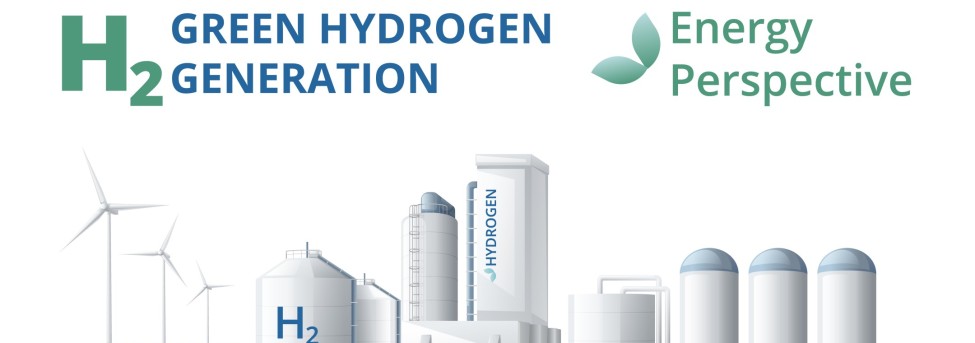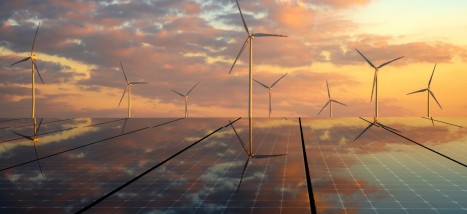-
25 March 2025

Green hydrogen can contribute effectively to emissions reduction
Green hydrogen often, but certainly not always, leads to CO2 gains. This is evident from research in Nature Energy by Kiane de Kleijne of Radboud University and Eindhoven University of Technology. 'If you calculate the entire life cycle of green hydrogen production and transport, the CO2 gain can be disappointing. But if green hydrogen is produced from very clean electricity and in the region, it can really contribute to emission reductions.'
Developing green hydrogen
Green hydrogen is thought to make a major contribution to reducing greenhouse gas emissions. Companies are currently investing in developing green hydrogen in countries where green energy required for the production of green hydrogen can easily be generated, such as Namibia and Brazil. The European Union also aims to produce 10 million tons of green hydrogen by 2030, and import a further 10 million tons. 'Green hydrogen is a promising technology due to its versatility and many applications. But unfortunately I foresee some obstacles along the way,' says De Kleijne, environmental scientist.
Whole life cycle
De Kleijne calculated the greenhouse gas emissions associated with the production of green hydrogen for more than a thousand planned green hydrogen projects, including the manufacture of, for example, solar panels, wind turbines and batteries to supply electricity, and transport via pipelines or by ship. 'Green hydrogen is produced by splitting water into oxygen and hydrogen in an electrolyser using green electricity. You can then use that hydrogen as a raw material or as fuel. Hydrogen made from natural gas is already widely used as a raw material, for example in the chemical industry for the production of methanol and ammonia, for fertilizer.'
The advantage of green hydrogen is that when water is split, in addition to hydrogen, only oxygen is released; no CO2. ‘But you do need large amounts of green energy for that,’ says the researcher. 'Only if you use green energy, such as wind energy or solar energy, can this reduce emissions. But even then, the emissions from the manufacture of wind turbines and solar panels alone add up significantly. If you look at the entire life cycle in this way, green hydrogen often, but certainly not always, leads to CO2 gains. The CO2 gain is usually higher when you use wind energy than when you use solar energy. This will improve further in the future, if more sustainable energy is used in the manufacture of wind turbines, solar panels and, for example, steel for the electrolyser.'Hydrogen transport
Hydrogen production results in the lowest emissions in places where there is a lot of sun or wind, for example in Brazil or Africa. The disadvantage is that the hydrogen then has to be transported to Europe: that is technologically challenging and can cause a lot of extra emissions. ‘Transport of green hydrogen over large distances contributes so much to the total emissions that a large part of the CO2 gain from production at distant, favourable locations is cancelled out,’ says De Kleijne. For short distances, transport emissions appear to be lowest for pipelines, for long distances when shipping liquid hydrogen.
Zero emissions
According to the scientist, the most important message is that we should not pretend that technologies such as green hydrogen are completely emission-free. Currently, calculation methods that form the basis for regulations often do not take into account the emissions of what must be manufactured to produce hydrogen, such as solar panels and electrolysers, nor hydrogen leakage during transport. This makes it seem as if green hydrogen does not cause many emissions, but that is not always the case. 'By looking at emissions from the entire life cycle, we can make a better assessment between technologies and identify where improvements are possible in the chain. Moreover, we can ask ourselves: what is important to produce in the Netherlands and Europe? And in which cases might it be better to move an industry to somewhere else in the world?'
Source: Radboud University, Nijmegen, the Netherlands
-
18 February 2025
 Renewable energy investment creates great potentialBy: Evertjan van Roekel
Renewable energy investment creates great potentialBy: Evertjan van RoekelAn investment in renewable energy offers an excellent financial return and a way to put your money to work for people and the environment. Sustainable energy investments also play a crucial role in tackling the global climate problem.
[Read more...] -
15 January 2025
 Hydrogen stocks and bonds: risks and opportunitiesBy: Evertjan van Roekel
Hydrogen stocks and bonds: risks and opportunitiesBy: Evertjan van RoekelGreen hydrogen is fast becoming a sustainable energy source. More and more companies are focusing on its production and development. Hydrogen stocks offer a lot of growth potential. However, the technology is still in its infancy, so returns in the short term may be disappointing. Bonds are a fixed-income alternative.
[Read more...]